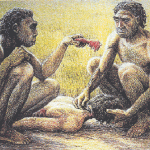Before you read anything else, read the following and ponder over its meaning for a minute:
“You will not be punished for your anger, you will be punished by your anger.” –Buddha
“Every day we have plenty of opportunities to get angry, stressed or offended. But what you’re doing when you indulge these negative emotions is giving something outside yourself power over your happiness. You can choose to not let little things upset you.” –Joel Osteen
“Anger is an acid that can do more harm to the vessel in which it is stored than to anything on which it is poured.” –Mark Twain
Everybody Gets Angry
 Though nobody likes to get angry, the truth is we all do. Everyday things, people, and unexpected situations frustrate us; we lose our temper, and let our anger take us over. But, when we cool down, we almost always regret what we said and how we reacted. It’s amazing how justified we feel about our reasons to be angry in the moment. But, what follows is usually embarrassment. Do you ever wonder what triggers the anger in us? Why do we get angry over little things giving them undue attention?
Though nobody likes to get angry, the truth is we all do. Everyday things, people, and unexpected situations frustrate us; we lose our temper, and let our anger take us over. But, when we cool down, we almost always regret what we said and how we reacted. It’s amazing how justified we feel about our reasons to be angry in the moment. But, what follows is usually embarrassment. Do you ever wonder what triggers the anger in us? Why do we get angry over little things giving them undue attention?
Primitive Reasons Behind Anger
According to an article on lakesideconnect.com, a website dedicated to dealing with crucial problems within American youth and families, we have a thinking part to the brain (cerebral cortex), and an emotional one (limbic system) where the latter is more primitive. The information from the outside world is first passed through amygdala (storehouse for emotional memories) which is present in the limbic system. If the incoming data triggers enough of an emotional charge, the amygdala overrides the thinking cortex causing the person to react in a more primitive way which is what causes the rage.
In continuity, a study from National Geographic’s TV blog states that the reason for this rage lies in the understanding that anger was actually a useful development for the survival of the human species. According to theories, anger helped our ancestors compete for critical resources for survival, from food to mates, helping them prevail in the natural selection race.
The above information helps us understand the reasons behind why do we get get angry. That is the first step: understanding. Now, it is time to go beyond just understanding. Knowledge without its correct use is as good as not having it. The next step it to comprehend how to control and then win over your anger. To do so, continue to read here.





